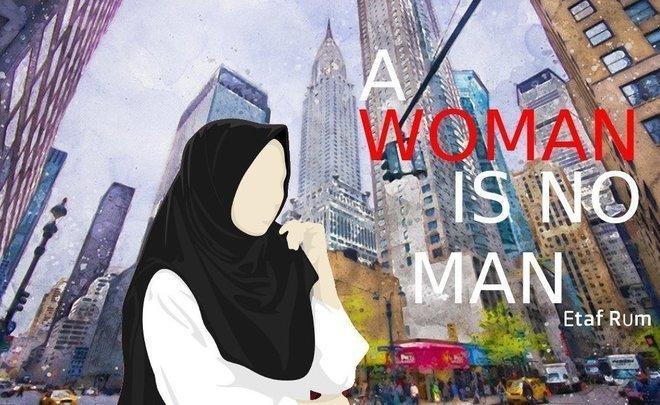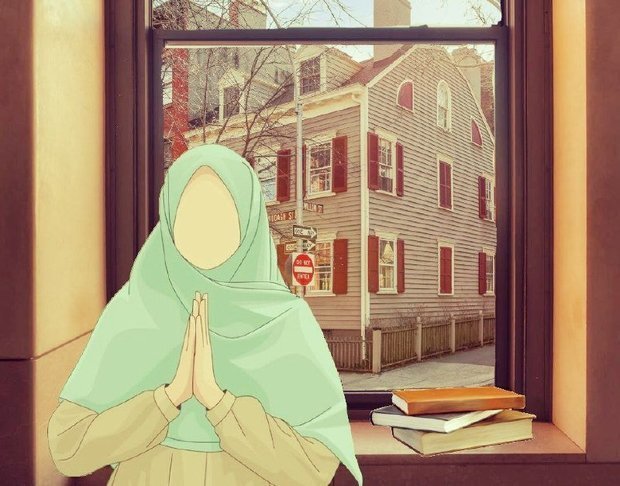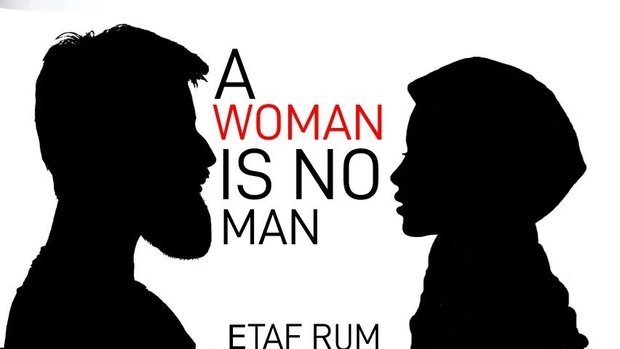Pathology of Silence in Itaf Rum’s book ‘A Woman is No Man’
This is a story about how silence and shame can destroy those we swore to protect

In a scene, a woman covers up her daughter-in-law's bruises with foundation and says: “There are things in this life that no one should see. Things that can't be flaunted. At your age, I didn't allow anyone to look at my shame.” In this short episode, writer Itaf Rum captures the whole essence of the lives of women who face domestic violence.
“A Woman is No Man” is the story of three generations of Palestinian women who are shaped by the traditions and culture of their ancestors. Although they have long left their historical homeland and now live in Brooklyn, their world order differs from life in Palestine only by a set of household items and hot water from the tap. But from the first pages of the book, the reader understands that Rum challenges these traditions, and the next four hundred pages the destruction of stereotypes awaits them.
“Where I come from, we have accustomed ourselves to silence, believing that it will save us. Only now, many years later, I realised that this was not true. It's only now that I'm writing this story that I feel like I'm really finding my voice.”
Isra
The first heroine the author introduces us to is Isra. Her story begins in the spring of 1990 in the Palestinian city of Birzeit. Isra is silent, quiet and compliant. She tries to please her parents and not mess up in front of the guests. But at the same time, her soul yearns for adventure and something new. Isra is already 17, which means it's time to marry her off. It's time for marriage, and a girl in the family is a burden that needs to be transferred to another family for maintenance as soon as possible. A girl does not bring money, unlike her brothers.
Isra's family is originally from Lydda, but when Israel invaded Palestine, they had to flee. The piece of land on which they now live was not needed by anyone, so they could afford it. Isra's father has high hopes for a future marriage, because the groom's family lives in America. And this is a chance for my daughter to break out into a better life.
Isra is also in anticipation, although she almost does not know Adam. For her, the United States is a different, new and free world. But when she arrives in New York, she sees him only from the taxi window on the way from the airport to Brooklyn. The newlyweds' bedroom is in the basement, where there is not even a window. Isra is forbidden to leave the house alone. She is imprisoned in four walls. The only salvation is books and conversations with her husband's sister Sarah, who is the opposite of Isra. In free America, thet young woman turned out to be more unfree than in occupied Palestine.
Farida's mother-in-law closely follows all of Isra's actions, she also reminds every day that a woman's task is to give birth to a son. But Isra has four daughters born one after the other.
Deya
After the introductory story of Isra, the narrative jumps to Brooklyn 2008, and Itaf Rum introduces the reader to Deya. She is the eldest daughter of Isra, who by that time, along with her husband, had died in a car accident. She is also 17, and Fareeda is arranging to marry her granddaughter off. Only Deya is not attracted to such a prospect. She dreams of going to college, continuing her studies, and then working.
Deya is inquisitive. She does not take everything said for granted but tries to understand the essence and check how it really is. Once a teacher at an Islamic school said that “heaven lies under the feet of women, we learn to pay tribute to them. This is what the Koran tells us.” Deya understands that her family and most of the families of her acquaintances are far from the Koran in their actions, that they only create an appearance in public, but behind closed doors, only domestic violence and domestic slavery await women.
A rebellion is brewing in the girl. At first, it's secret listening to Eminem and reading books, but then her father's sister Sarah suddenly bursts into her life. Around the age of Deya, Sarah ran away from Farida's custody and severed all ties with her family. Now she runs a bookstore in Manhattan and is no different from modern American women. When Deya meets Sarah, she goes outside her street for the first time, sees the centre of New York for the first time, inhales the pleasant and fetid smells of the city. Deya seems to be transferred from the closed Arab world to freedom-loving New York, where she was actually born and lived her whole life.

From conversations with Sarah, the girl learns not only about her aunt's past, but also about the terrible tragedy that happened in her family. She begins to suspect that there is some secret in the death of her parents that Farida keeps.
Fareeda
The story of Fareeda begins in 1998. Her story fills in the gaps in the stories of Isra and Deya. The chapters about Fareeda are some of the most creepy and scary in the book. They shed light on all the horrors that happened in her family.
Fareeda strictly adheres to traditions. She is their keeper. And nothing should shake them. Even the death of her son and daughter-in-law does not make the woman think. But it would be a big mistake to judge Fareeda from the point of view of our culture. She is the most difficult character in the book, who will undergo a powerful transformation by the end. One can understand this only if they abstract from the world in which they live and immerse themselves in the history of this woman, try to stay in her shoes. To do this, the author introduces chapters with Fareeda's background and her life before America.
It is difficult to imagine what she experienced in her childhood and in refugee camps. There was nothing in her life that gave stability and peace of mind. And only the frantic observance of traditions serves as a support, without which Fareeda's world will simply collapse. It is difficult for her to accept her granddaughter's desire to study, because if she agreed to this, she would have to agree that her life was a senseless sacrifice, and her silence and shame led to the death of her son and daughter-in-law.
Men
There are many male characters in the novel, but their presence in it is episodic, as in the lives of the women with whom they live. The men in the book constantly work. But this is not the pursuit of the American dream, but a forced necessity. For example, Adam wanted to be an imam. But since he is the eldest son, he must take over the management of the family store, and also help his younger brother in his business. Traditions demand it that way.

Men here also suffer from the traditional patriarchal way of life. They were forced to leave their native country, become refugees, work around the clock to feed a huge family. How would their life have turned out if it hadn't been for the war?! Would Adam become so angry at everyone around him if he could realise himself and become an imam, as he dreamed of? Would he have beaten Isra then? Perhaps, he wouldn't get drunk every night and he wouldn't have to hush up and hide his shame as a Muslim.
Itaf Rum touched on very complex topics and intertwined them with each other in addition. At the same time, she did it in such a masterful way that it is impossible to put the book down. Due to the dynamic plot, four hundred pages can be read in two evenings. The dynamics are added by constant jumps in time, which do not allow the brain to relax, make it read carefully and assemble the puzzle into a single picture. The stories of Isra and Deya run parallel, but in different times. And at the same time, they seem to be moving towards each other: from the past to the future and from the future to the past. They converge at one point, like the last element of a puzzle.
But in addition to a well-constructed plot, the success of the book was influenced by the story of the writer herself. Itaf Rum was born in Brooklyn to a family of Palestinian immigrants. She is the eldest of nine children. Like Isra, she was forced into an arranged marriage. But then her fate went differently. She divorced her husband, received a Master of Arts degree and began teaching English literature at the North Carolina State University. The novel “A Woman is Not Man” is largely based not on her personal experience.